STOP KISSING THE TOOTH – APRIL 2023
By Mercedes LoRusso,
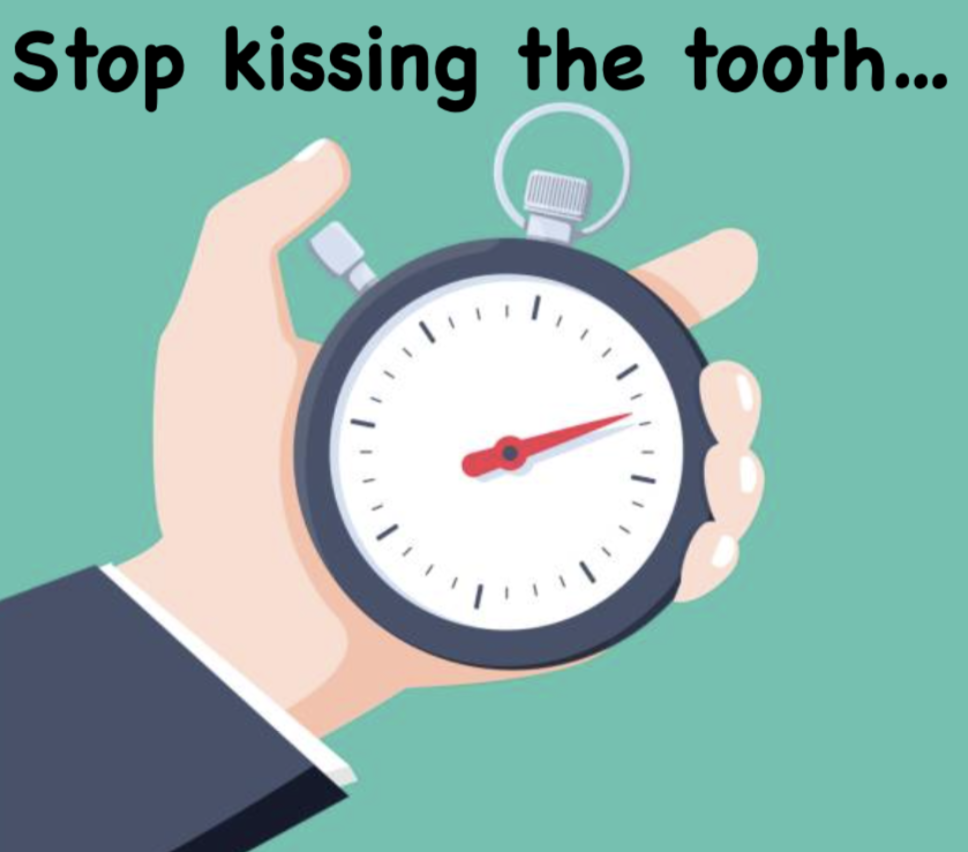
|
|
|
|
|
|
|
|
Filed under: Blog
Comments: Comments Off on STOP KISSING THE TOOTH – APRIL 2023

|
|
|
|
|
|
|
|
Filed under: Blog
Comments: Comments Off on STOP KISSING THE TOOTH – APRIL 2023
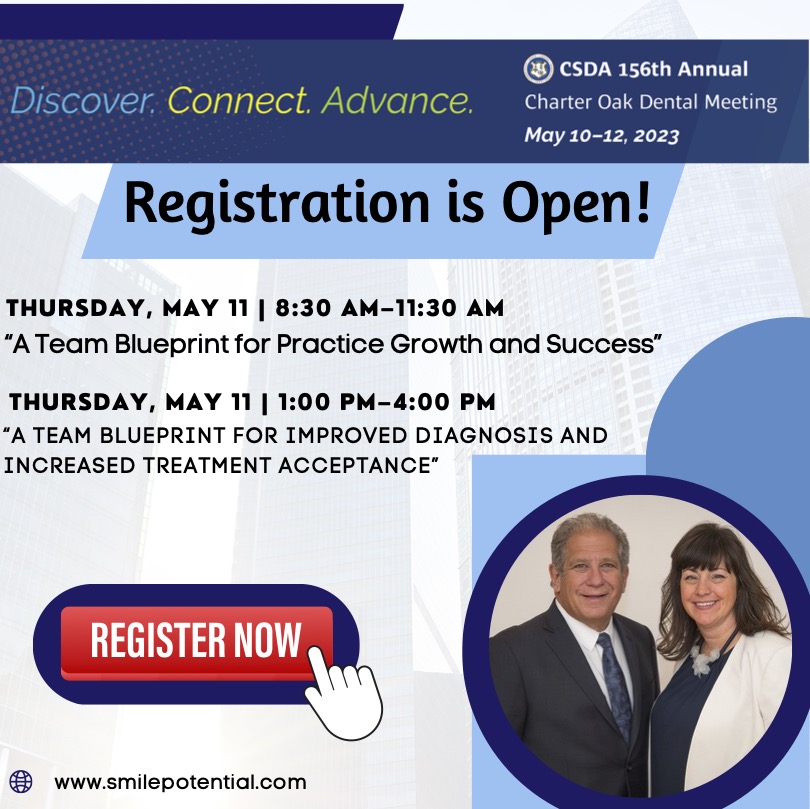
Filed under: Blog
Comments: Comments Off on JOIN DR. KATZ AND KELLY AT THE CONNECTICUT STATE DENTAL MEETING MAY 25TH

|
|
|
|
|
|
|
|
|
|
|
|
|
|
|
Filed under: Blog
Comments: Comments Off on PATIENCE AND APPRECIATION FOR PATIENTS…..AND TEAM – NOVEMBER 2022

|
|
|
|
|
|
|
|
Filed under: Blog
Comments: Comments Off on WHY COACHING? – OCTOBER 2022

|
|
|
|
|
|
Filed under: Blog
Comments: Comments Off on PENNY-WISE, CROWN FOOLISH – SEPTEMBER 2022
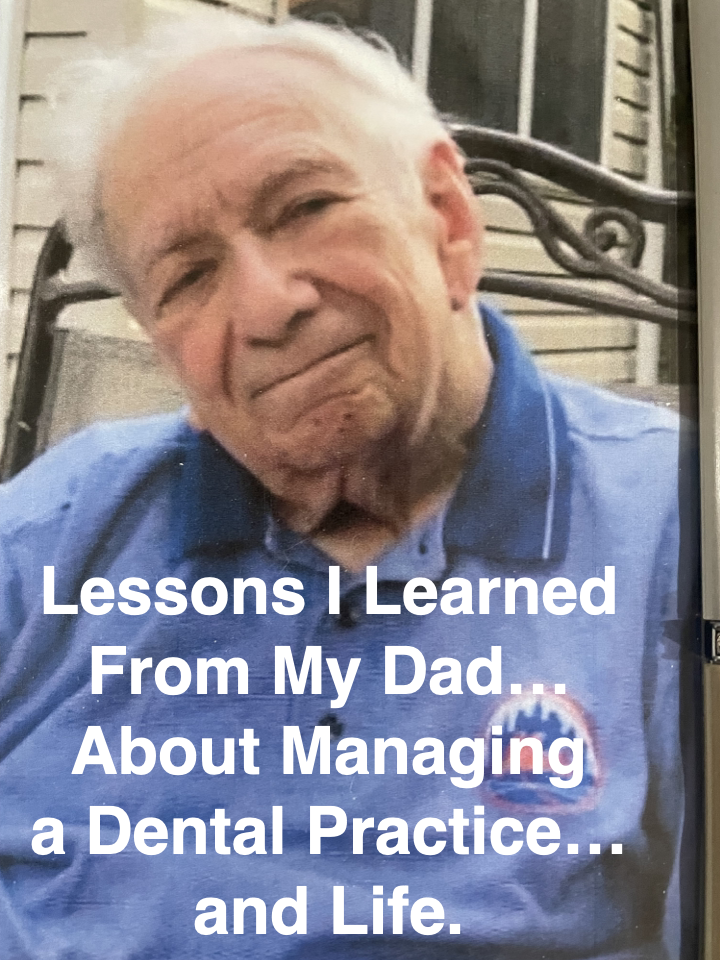
|
|
|
|
|
|
|
Filed under: Blog
Comments: Comments Off on LESSONS I LEARNED FROM MY DAD…ABOUT MANAGING A DENTAL PRACTICE…AND LIFE – JUNE 2022

|
|
|
|
|
|
Filed under: Blog
Comments: Comments Off on HOW TO RETAIN YOUR TEAM – MAY 2022
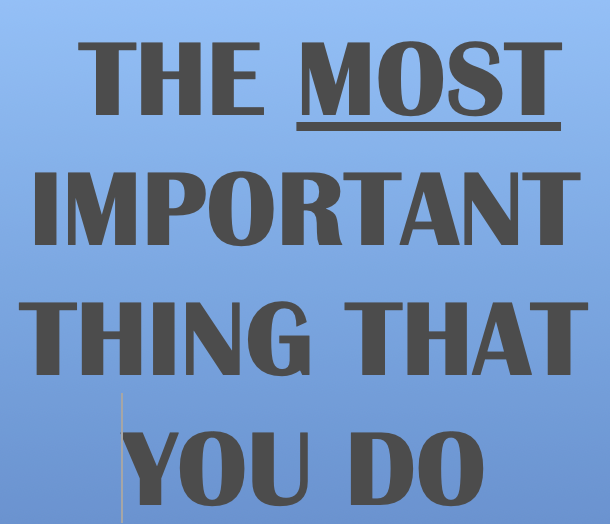
|
|
|
Filed under: Blog
Comments: Comments Off on THE MOST IMPORTANT THING YOU CAN DO – APRIL 2022
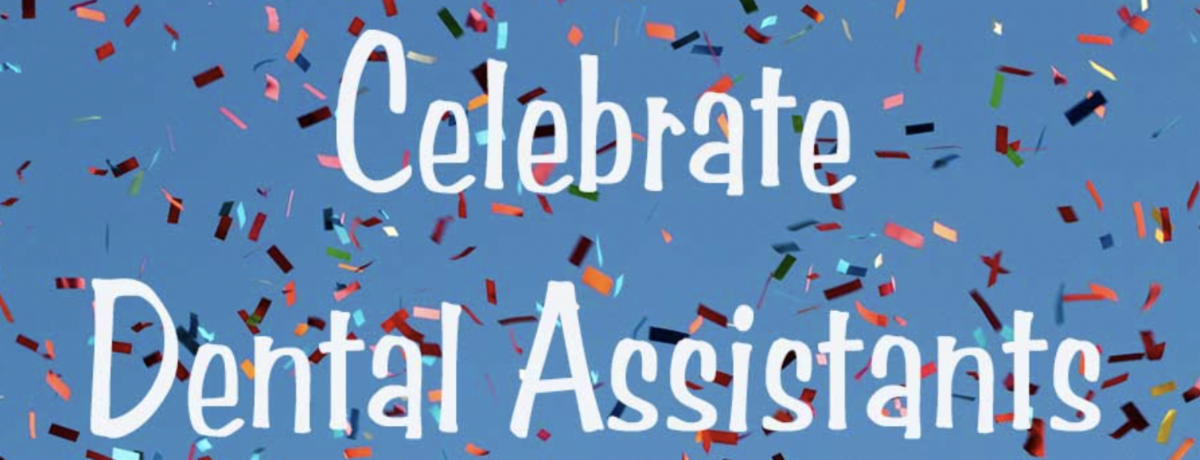
We “Celebrate Dental Assistants” this month by recommending a great book, “Battling and Beating the Demons of Dental Assisting,” for all of you to give to your assistants. It is written by one of the most influential voices in Dentistry, Kevin Henry, who had been the editor of numerous dental publications and who now advocates for the empowerment of dental assistants. “Battling and Beating the Demons of Dental Assisting” is an encouraging self-help book to raise confidence and increase pride in the job your assistants do. We will be offering it to the dental assistants in the practices we coach as part of our coaching program. At a time when attracting clinical assistants is difficult, it makes good sense to celebrate and motivate these individuals, who work side by side with us, for the benefit of our patients.
|
Each year, around this time, we are reminded by the American Dental Association to celebrate Dental Assistants Appreciation Week during the first week of March. How insulting! If you are smart, you should be celebrating the contributions made by your clinical assistants to the success of your practices each and every day of the year.
In every successful practice that I’ve ever visited, at the core of their success is one or more assistants who have an incredible work ethic, and who are setting up rooms and turning equipment on long before the doctor arrives. They have command of sophisticated equipment and technology. They have incredible knowledge of a wide array of materials, instruments, procedures and policies, with little room for error. They perform their job within 18 inches of the person who oversees them and of the person for whom they are caring…if that’s not stressful, what is? They are expected to do all of this repetitively with speed, accuracy, a smile on their face and warmth in their heart. And they are expected to anticipate the doctors’ needs, often before the doctor even knows what they need…each and every day of the year. How do we wait until March to celebrate them?
I have been blessed to work with some incredible clinical assistants throughout my career. These assistants were the driving force of my success, and the success of my practice.
More important than the clinical aptitude of the great assistants, is the attitude of confidence that they demonstrate through their empowerment. These are the team members who are never satisfied by what they know, but who always seek additional knowledge and training. They love going to continuing education and take pride in applying what they learn. These are the team members who are not “pulled along” by their doctors, but instead, “push” their doctors to higher levels of achievement. They possess a mantra of “it’s never not my job” as they not only function at the highest level, but they make every other member of their team better.
|
 |
|
This article would not be complete without recognizing two assistants who contributed so much to my success, and who continue to be leaders in the field of dentistry. The first is Denise, who worked chairside with me for 20 years. Though she lived the furthest from our office, she was the first one in and the last to leave, day in and day out. Her clinical skills were unmatched, and she trained every subsequent clinical team member in my office to her high standards until I left practice. She loved clinical assisting so much, that she would not aspire to becoming an administrator, yet she was among the most talented team members I have ever known in phone and verbal skills. I was proud when she went on become the manager of another practice and contributed to that practice winning “Best of Long Island”, just as she had done for our practice several years before.
The second assistant I would like to recognize is Amanda, our incredible Smile Potential Clinical Assisting Coach. Though Amanda only worked with me in my practice for a few years, her contribution to my practice was immeasurable. Her skill with digital workflow helped advance my practice to the forefront in being a pioneer in the use of clinical technology. Now that we are reunited in Smile Potential, she has revolutionized our ability to help with the training of making clinical assistants productive in the practices we coach. She has developed our “Dental Assisting Done Right” program which includes modules on clinical proficiency, scanning and digital workflow, inventory management, infection control, verbal skill prowess, and clinical organization.
It has always frustrated me when dental assistants have introduced themselves to Kelly and I as “just the assistant” in the practice. I always correct team members by insisting that they are “especially the assistant” in their practice. Dental Assistants, and the rest of the team, need to realize that they (the assistants) are as important as any other member of the team, and in many ways, they are the most important interface to our patients. In the treatment room with talented clinical assistants, such as Denise and Amanda, I was “just” the dentist.
Dental Assistants…thank you for all that you do!
|
Filed under: Blog
Comments: Comments Off on CELEBRATE YOUR DENTAL ASSISTANTS – MARCH 2022

|
I had the distinct pleasure during High School to participate in musical theatre. My favorite show that I participated in was Pajama Game. I played the part of Hines, an efficiency expert in the Sleep-Tite pajama factory. As the curtain opened for the show I was running around the production floor of the pajama factory and singing a song entitled “Think of the Time I save”:
“I’m a time study man, and a time study man can’t waste time.
For a time study man to waste time, is a crime.
So I’m ruled by the tick tick-tock.
And I live my life by the clock.
I live my life by the tick tick-tock of the clock.”
Each verse of the song offered a way to save time…not undressing when you go to sleep (“I will admit that the suit gets mussed and it gathers lint and it picks up dust, but think of the time I save.”), shaving in bed (“The lather drips and the bed gets wet and oh what a lousy shave I get, But think of the time I save.”), combining ingredients for breakfast in a single bowl (“I grab a bowl. And in the bowl I drop an egg, and add some juice. A poor excuse for what I crave. And then I add some oatmeal too and it comes out tasting just like glue, But think of the time I save.”).
The time saved by working more efficiently in the factory eventually was leveraged to substantiate giving each employee a 71/2 cent raise.
|
|
In coaching dental practices to be more efficient, I am still a time-study man. I teach practices that the second greatest cost to practices, aside from team compensation, is lost production time, so that raising perceived value is a way of keeping the schedule full and preventing the disappointment of broken appointments. We recommend tracking open schedule time and relating it to hourly production of each provider to determine lost opportunity each month.
We try to minimize team “down-time” by creating comprehensive lists of down-time tasks to do that help to fill the schedule and build improved organizational systems. These task lists prevent the time that often gets wasted by team not having clarity on what to do when they are not involved in patient care.
We try to streamline time-wasting processes. When we see a doctor taking much too long time performing a crown prep, temp and impression or scan, we ask the assistant to time procedures for the doctor, and, even, each component of the process ( prep, temp, scan or impression) to see where there is an inordinate amount of time be used or wasted. Just the act of timing often creates awareness and it speeds up the process. We’ve seen numerous doctors cut their time for various procedures in half without adding any stress or pressure. This results in a tremendous increase in production and patient satisfaction.
A major part of our program teaches how to streamline hygiene checks of recall patients. This is by far one of the greatest sources of inefficiency and falling behind in the schedule in most practices. It begins with doctors not responding to requests for a check from the hygienist in a timely manner. In order to prevent this, the hygienist should signal the doctor to come in for their check as soon as the diagnostics (exam, Oral Cancer screening, X-rays, intra-oral photos and perio charting) have been completed, and not wait until they are finished because that may not be a convenient time for the doctor. Enabling the doctor to come in when they are free will prevent having to wait long times for doctor checks.
|
 |
|
The other area that seems to waste office time is not having a system for timely and efficient hygiene checks. We teach that the hygiene check should take no more than 3-5 minutes…tops. All too often we see these checks taking 15 or 20 minutes, or more. And if there are multiple hygienists to check, this creates a disaster in the schedule. This is why we teach block scheduling for multiple hygienists so that one hygienist is always doing perio or other non-exam requiring procedures.
When hygiene checks take 20 minutes or more, this inevitably puts the hygienist way behind in their schedule and the doctor’s patients get annoyed wondering “Where the hell in the doctor? I have to get back to my office.” We know it is because the doctor is trying to “sell” the patient some treatment. There is a far better system to accomplish this without adversely affecting the schedule.
The successful efficiency of the hygiene check is also one of the most sure ways to build a practice because in less time it is possible for a trained hygienist to recognize and promote opportunities for a doctor to ultimately recommend and gain acceptance of far more restorative dentistry. But this requires a system of consistent diagnostic criteria, strong verbal skills and a system for overcoming inevitable patient objections to treatment. I strongly recommend that doctors and their teams reach out to us to enable us to help them implement these systems. They are the basis of our client practices increasing $300,000 or more in their first year working with us.
|
Filed under: Blog
Comments: Comments Off on THINK OF THE TIME YOU CAN SAVE – FEBRUARY 2022
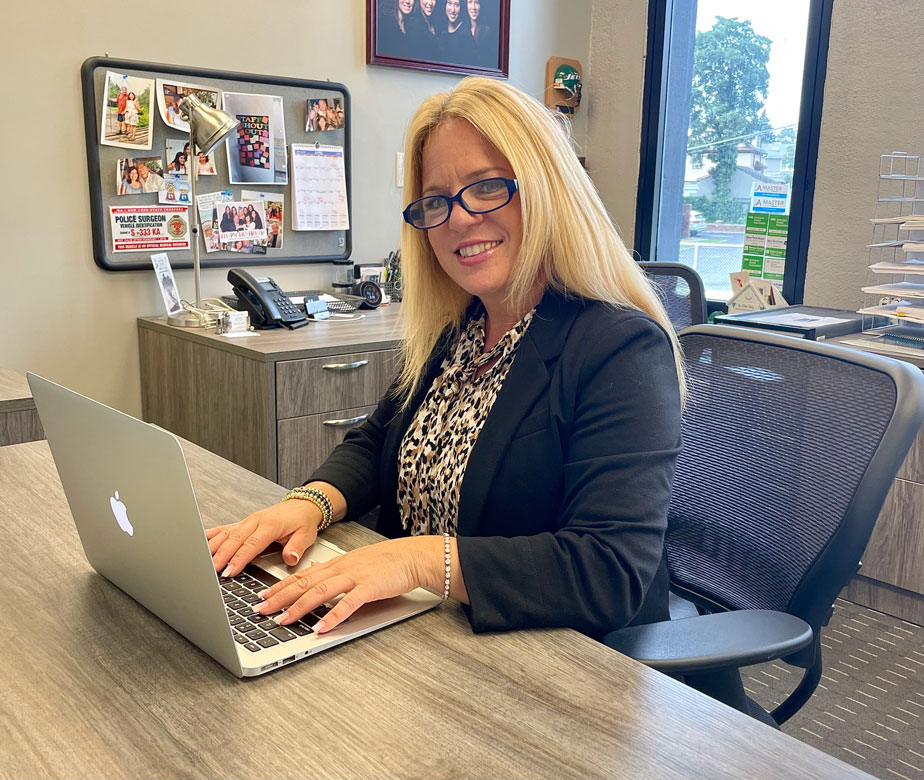
©2024 Smile Potential Dental Practice Growth Coaching | Site Design & Development by Logic Web Media